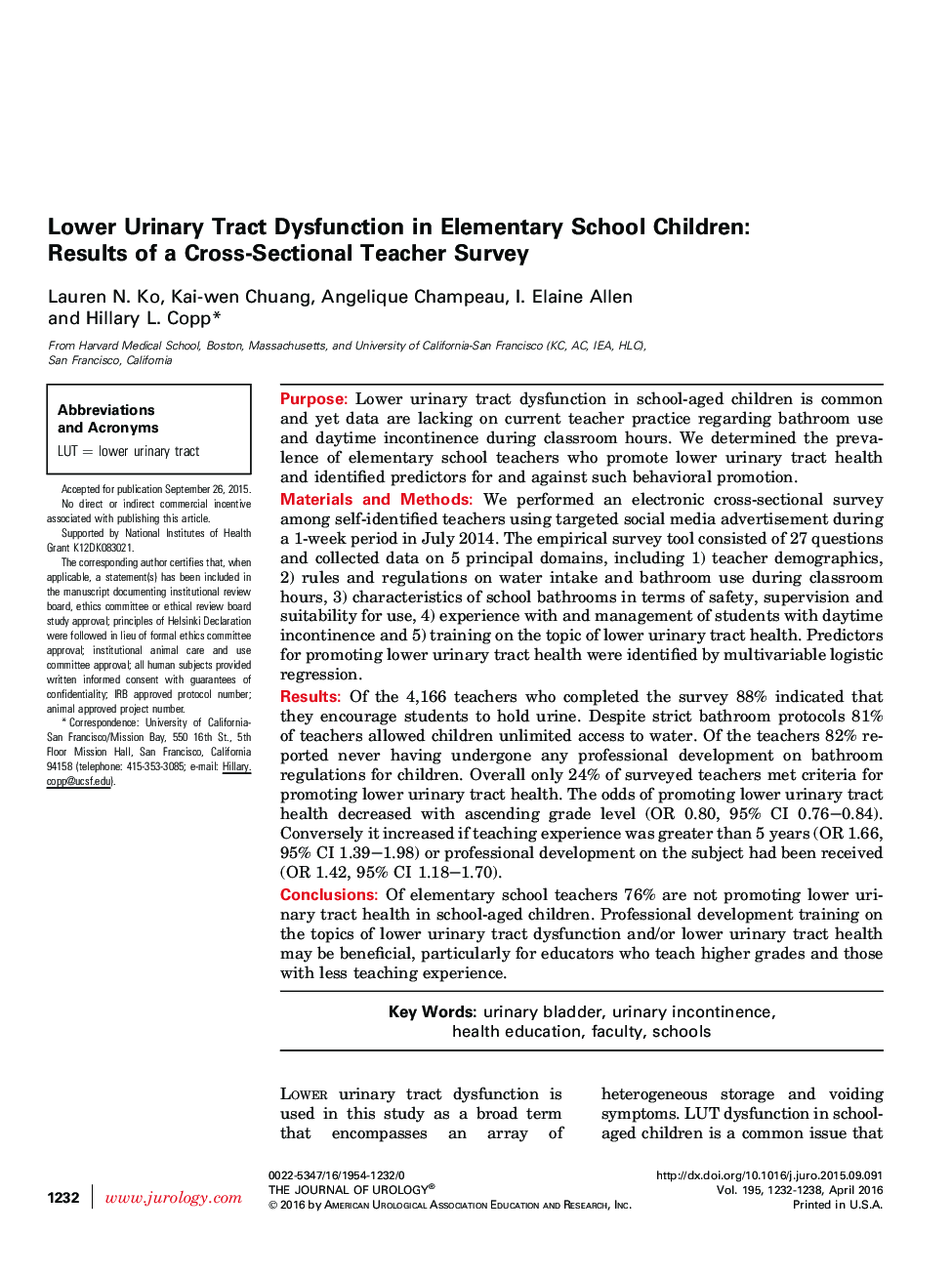| Article ID | Journal | Published Year | Pages | File Type |
|---|---|---|---|---|
| 3857945 | The Journal of Urology | 2016 | 7 Pages |
PurposeLower urinary tract dysfunction in school-aged children is common and yet data are lacking on current teacher practice regarding bathroom use and daytime incontinence during classroom hours. We determined the prevalence of elementary school teachers who promote lower urinary tract health and identified predictors for and against such behavioral promotion.Materials and MethodsWe performed an electronic cross-sectional survey among self-identified teachers using targeted social media advertisement during a 1-week period in July 2014. The empirical survey tool consisted of 27 questions and collected data on 5 principal domains, including 1) teacher demographics, 2) rules and regulations on water intake and bathroom use during classroom hours, 3) characteristics of school bathrooms in terms of safety, supervision and suitability for use, 4) experience with and management of students with daytime incontinence and 5) training on the topic of lower urinary tract health. Predictors for promoting lower urinary tract health were identified by multivariable logistic regression.ResultsOf the 4,166 teachers who completed the survey 88% indicated that they encourage students to hold urine. Despite strict bathroom protocols 81% of teachers allowed children unlimited access to water. Of the teachers 82% reported never having undergone any professional development on bathroom regulations for children. Overall only 24% of surveyed teachers met criteria for promoting lower urinary tract health. The odds of promoting lower urinary tract health decreased with ascending grade level (OR 0.80, 95% CI 0.76–0.84). Conversely it increased if teaching experience was greater than 5 years (OR 1.66, 95% CI 1.39–1.98) or professional development on the subject had been received (OR 1.42, 95% CI 1.18–1.70).ConclusionsOf elementary school teachers 76% are not promoting lower urinary tract health in school-aged children. Professional development training on the topics of lower urinary tract dysfunction and/or lower urinary tract health may be beneficial, particularly for educators who teach higher grades and those with less teaching experience.
